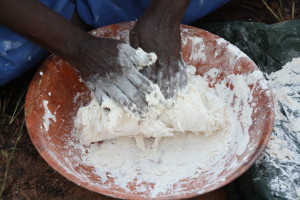
Like the bush damper, my social work practice framework is a recipe I’ve learnt from wiser people around me.
I was recently asked by the Australian Childhood Foundation to answer some questions which would be used to contribute to the development of a team practice framework. I have no doubt my answers will be very different to other members of the team. It represents what is the best mix for me at this point in time. It is an emerging and ever-evolving recipe for working with Indigenous communities. Like any recipe, there is always room for improvement. Here are just some of the ingredients.
How would you describe the 5 most important principles that underpin your approach to working with children and families?
- Awareness of Aboriginal history, colonisation, cultural genocide and intergenerational trauma. This is a big topic to get your head around but it is necessary. One cannot be working with Indigenous folk without appreciating and accepting how ‘white privilege’ impacts on our work. It is an ongoing learning project for me. This is closely linked with the social work values of human rights and social justice which are the core values that drive my passion for this work.
- Mutual respect. This cannot be achieved without a relationship. If you give respect, you can expect respect in return. Establishing a relationship of trust is the most important part of the work, given Indigenous people can be suspicious of whitefellas (with very good reason – there is a history of people coming into their communities, doing their work and leaving without engaging in authentic consultation or setting up any sustainable change processes). It was important to me to stick around, to show that I wasn’t going to be another ‘white toyota’. In my first 6 months working remote, all I did was had cups of tea with people and listened. This was so important in being able to establish a relationship of mutual respect.
- Doing ‘with’ not ‘for’. It is walking alongside our clients, not in front and not behind. This is probably the hardest principle to stay connected with. It is very tempting to take over and do things for people when they have become so disempowered. I have to constantly remind myself ‘how can I be?” rather than ‘what can I do?’ There is also a risk of overdoing it, thinking you can save the world and then dropping behind from burnout. I am reminded of the words from Lila Watson
“If you have come here to help me, you are wasting your time. But if you have come because your liberation is bound up with mine, then let us work together.”
- Genuine collaboration and accountability to the community. This is not something that should happen as an aside in the work. This should be first, foremost and ongoing. It follows on from my previous point about ‘doing with not for’, and my next point about not being the expert. I have written a bit about collaboration from a cultural perspective elsewhere.
- Coming from a stance of curiosity and non-expert. I don’t have the answers. I will never know what it is like to walk in the shoes of an Aboriginal person. But I do have skills in being able to listen to the problems of people’s lives and reconnect them with their skills, knowledge, values, hopes and visions that may have temporarily become lost. I believe everyone has the capacity to find their own solutions if they are prepared to explore the ‘real me’. Discovering the person that has got lost, sometimes means working through some really hard issues that have got in the way of their preferred self. My approach is therefore one of curiosity.
What theories or knowledge do you draw on to inform your approach?
- Community development theories. Of all my formal social work education, the theoretical understandings of community development have had the most impression on me. Community is also an important part of my personal life too. I take an active role in volunteering, participating in community life and being a change agent in the community development process.
- Systems theory. One cannot work with children alone. For real change to occur we must engage at the family, community and society level. After all, it takes a village to raise a child.
-
Two way learning model. This implies I have just as much to learn from the people I work with as they do from me. We are exploring the questions and finding the answers together. When I started working in NE Arnhemland I took the time to document the emerging practice framework between myself and our Yolngu worker to demonstrate how Yolngu and Western worldviews were working together to bring healing to the lives of children, their mothers and families affected by domestic and family violence. I hoped it might give some insight into how other workers might marry Western approaches to counselling with Yolngu methods of healing. This reflection speaks extensively about the knowledge, values, beliefs and skills underpinning this cultural practice framework. I also enjoy documenting and sharing the skills, knowledge and abilities of Indigenous folk who are staying strong in the face of hardship. Many of these stories can be found here.
- In recent years I have been drawn to the trauma-informed approach in children’s counselling to address concerns around behaviour, learning, health and various aspects of wellbeing. But how does this scientific knowledge inform our work with groups and communities who have experienced intergenerational trauma, where the effects of violence are normalised? What affects has the impact of trauma from colonisation, dispossession and assimilation had and continue to have on Aboriginal people, families and communities from a neuroscience perspective? These are big questions I wonder about.
There are many, many other theories and pieces of knowledge somewhere deep inside my brain. But these are the ones that come to mind at this present moment.
How do you describe the goals or aims of your work?
I am really passionate about early intervention and prevention. These terms get thrown around a lot so they have lots of different meanings for different people. My passion is about the prevention of trauma through culturally safe therapeutic support. My current work is all about the prevention of trauma in young children under 3. I believe this is where we can make the most difference in breaking the cycle of violence and trauma. If we can get a child through the first 1000 days of their life with a secure attachment and no ongoing exposure to harmful trauma then they have a much better chance of growing up strong and healthy. Unfortunately, many Aboriginal children have an early childhood developmental history of exposure to domestic or family violence, child abuse or drug and alcohol abuse. In 5-10 years time, my hope is that this number is reduced significantly because there is more investment being made in the early years to ensure children’s safety, security and emotional needs are being met. It seems wrong to me that we spend all the money on children when they reach school. The damage has already been done by them and it is harder to heal.
What are the 5 most important techniques that you use in your work?
- Narrative therapy. I have shared some of the ways of I incorporate narrative practice into my work with Indigenous folk here.
-
Expressive therapies. Communicating using drawing, painting, craft, clay, storytelling in the sandtray or with puppets. These are the mediums where many great things can happen from externalising problems to integrating trauma. I have had fun writing about and developing my own art therapy techniques, testing, reflecting on and reshaping them to ensure they are culturally safe.
- Indirect questioning. It is better to invite an Aboriginal person to tell their story than to ask a whole lot of direct questions. Sometimes it takes a lot longer to get a picture of what is going on, maybe many months. This requires patience. But at least you won’t be causing more shame or bad feelings for that person through interrogation.
- Attentive listening. Double listening. Listening for what is said as well as what is not said. Watching out for the signs of resistence. Listening for the ways people are standing up to the effects of problems and systems on their lives. Looking for the sunlight peering through a small crack that opens the door to people’s preferred ways of living their lives.
- Self care. I cannot approach my work with care and empathy if I am not giving this to myself. I have learnt the hard way. In 2013, I developed early stage thyroid disease which can be exacerbated by stress and shortly after, herniated a disc in my lower back. Both of these physical impediments are closely linked to psychological health. Remote work can be taxing even when you are healthy and have a strong mind like I do. I had to give up my work for a while to begin a process of healing and recovery. This has been a long hard process. I have learnt how to listen to my body and meditation has now become a daily practice (something I struggled with for many years).
What are the 3 outcomes that you believe you achieve in your work?
- Trust. And with that comes engagement. Once you have engagement, then you can work together on the practical issues. This goes for counselling – resulting in the client feeling listened to, finding the conversation helpful, wanting to come back and moving forward in their lives. It goes for community work too, with Elders and leaders of the community wanting to stay connected to what you are doing.
- Awareness raising. While I would like to say that I have been able to stop violence in a family or community, it’s probably not the case most of the time. The best I can hope for is to make women and children aware of the impact of trauma on themselves, their children and their community. It is up to them in the end, whether they stand up to it or take action to protect themselves and those around them. My latest project is getting ‘the brain story’ out to women in communities, so that they can make a more trauma-informed choice about their protective behaviours towards children.
- Helping communities to help themselves. I am committed to employing and mentoring local people to work alongside me.
What kind of supports do you believe are important for you to experience that will enable you to improve the effectiveness and quality of your work?
Supervision from an Aboriginal social work practitioner. This is difficult to access when working under funding arrangements which don’t necessarily value this.
What books or journal articles have inspired you?
Trauma Trails: Recreating Song Lines: The Transgenerational Effects of Trauma In Indigenous Australia by Judy Atkinson
Collective narrative Practice: Responding to individuals, groups and communities who have experienced trauma by David Denborough. His latest book Retelling the Stories of Our Lives is such an accessible, easy read. It is designed for anyone to be able to do their own healing using the gentle principles of the narrative approach.
Telling Our Stories in Ways that Make us Stronger by Barbara Wingard and Jane Lester
Our Voices: Aboriginal and Torres Strait Islander Social Work eds. B Bennett, S. Green, S. Gilbert, D. Besserab
The Art Therapy Sourcebook or anything by Cathy Malchiodi
Anything by Dan Seigal including his many U-tube clips and TED talks.

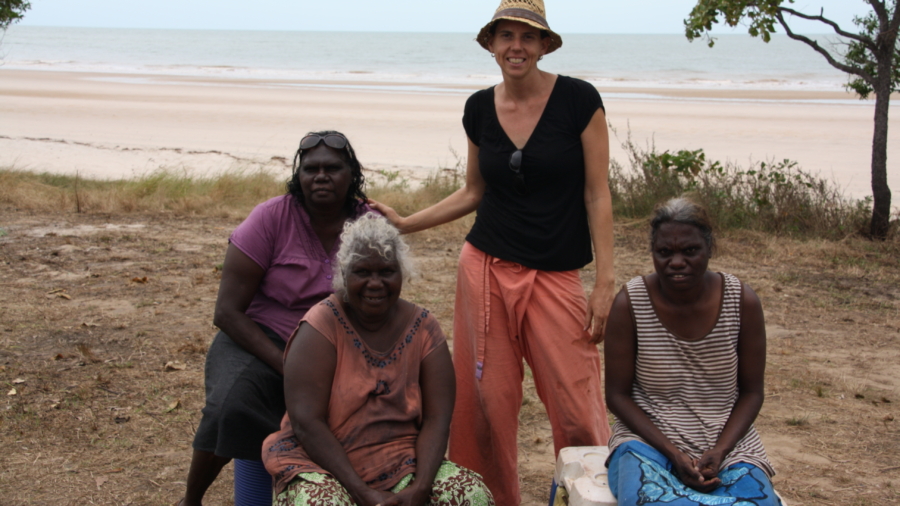
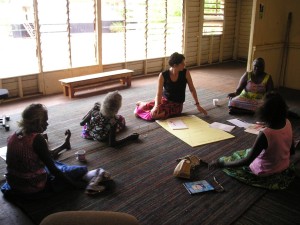
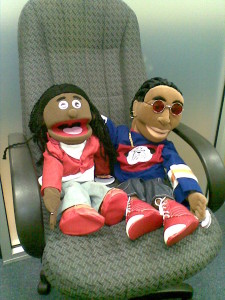
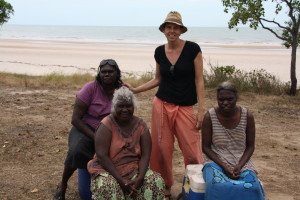
This is just beautiful, thank you so much for sharing – but i can’t see your name anywhere!
Hi Morag,
Thanks for reading. My name is Lucy Van Sambeek. Please to meet you.
hello Lucy,
thank you for such a beautiful work.
Thank you. Practice frameworks are always evolving. I guess this captures a moment in time.
Hi Lucy,
I stumbled across your blog accidentally and am so happy I did. I find such alignment in all you write about here and am very excited to engage more fully in the blog and the podcast. While theoretical perspectives mentioned are not necessarily new, it is very exciting to see someone write articulately about their framework in relation to this! Love your work!
Thanks Kate. Please feel free to comment on any of the articles and share your work too! We would love to hear about it.
So beautiful to read thank you for sharing your framework it’s heart warming.
Reflection over a cup of tea next for me -Carina
[…] metaphor. (2015, August 30). A Social Work Practice Framework: The Right Mix for me…Metaphorically Speaking. https://www.metaphoricallyspeaking.com.au/a-social-work-practice-framework-the-right-mix-for-me/ […]